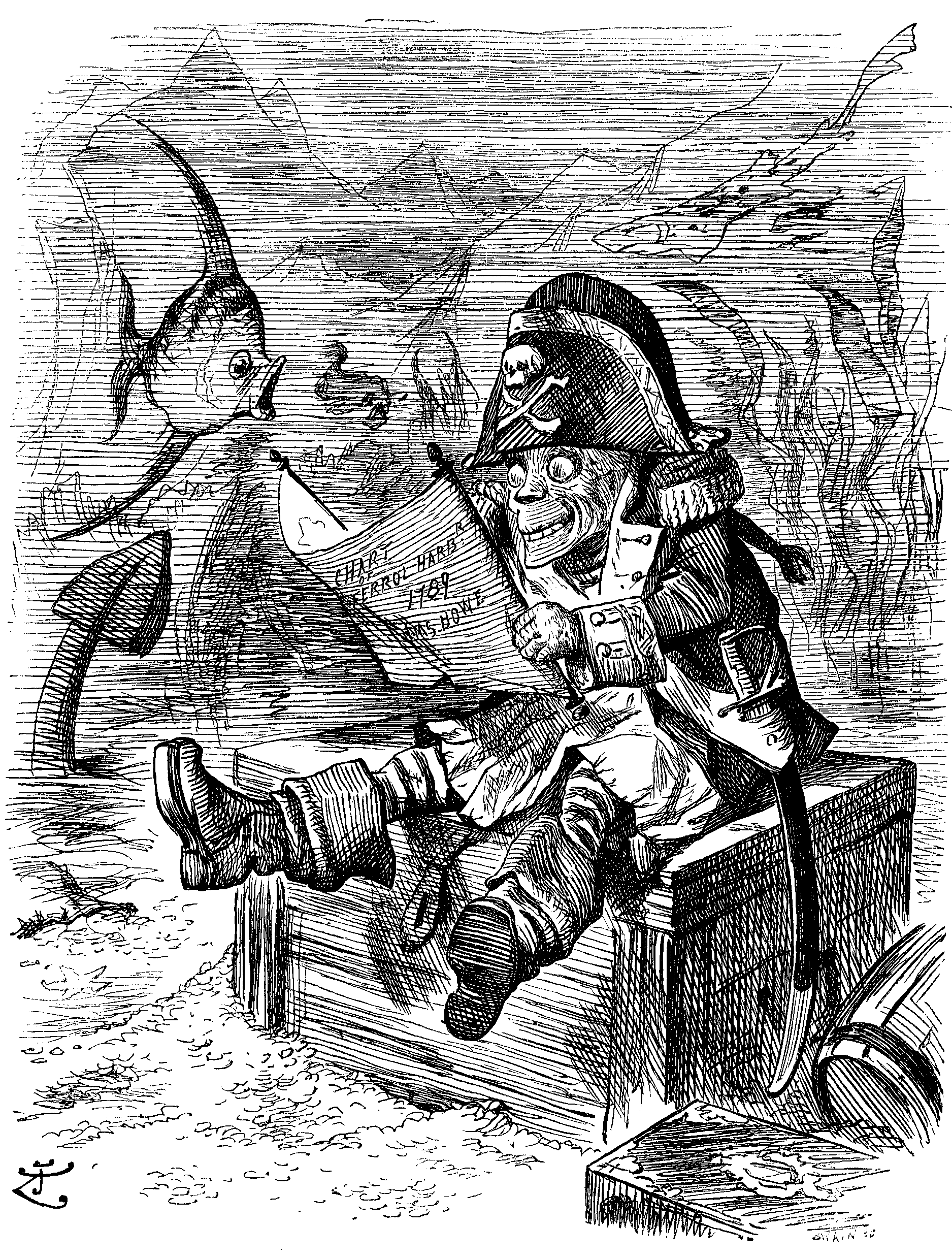Did pirates go to heaven?
All European pirates were at least nominally Christian. This
is not remarkable, because in Europe at the time, one needed to be Christian to
live among other people. Children were baptized early, as the ritual was supposed
to protect the child and, since many people died very young, it was also necessary
to make sure the child got into heaven.
The word “Christian” meant a lot more at the time that “an adherent
of the Christian church.” It was often
used to mean “proper”. Thus, a sailor might to told to “Furl that line like a
Christian” when the line was supposed to be furled neatly and put away in its
proper place. The opposite of “Christian” wasn’t “Atheist” it was “savage” – a wild
person with no sense of propriety, order or decency. And people believed, quite firmly and literally, that only good Christians would get into heaven and avoid the fires of Hell. This attitude filtered
down even to pirates, who worried about their immortal souls as much as anyone.
This is even shown in the Pirates of the Caribbean series.
One pirate says to another “Leave me alone, I’m reading the Bible.”
The other pirate replies, “You can’t read!”
His friend replies, “You get points for trying.”
This brings us to the fact that few sailors, and fewer
pirates, had a chance to lead a Christian life. The religion was tied into community, and
pirates had little in the way of community, being wanderers. They rarely, if ever,
had a chance to attend church. They often did not marry (which was considered
an important part of Christian life). They got drunk, hired prostitutes,
fought, and took things that did not belong to them. And for people who
believed quite literally in Heaven and Hell, this was a real problem.
Even swearing was considered a major sin by the Christian
churches, and pirates (like other sailors) swore constantly. They were known
for it.
(As an aside, recent scientific studies have shown that shouting a swear word can temporarily block pain, and that it can also provide an adrenaline rush that improves strength. In world where pain came regularly, and near-superhuman strength was needed to haul ropes, swearing must have been a useful
(As an aside, recent scientific studies have shown that shouting a swear word can temporarily block pain, and that it can also provide an adrenaline rush that improves strength. In world where pain came regularly, and near-superhuman strength was needed to haul ropes, swearing must have been a useful
tool.)
Pirates accepted that they were going to Hell, and sometimes owned
it as a matter of bravado, rather like a modern-day biker with a tattoo that
says, “Heaven doesn’t want me and Hell is afraid I’ll take over.” However,
there was an alternative. Sailors, understanding that their lives lay outside
of the normal round of Christian life, invented a heaven of their own.
This place was called Fiddler’s Green. Descriptions of it go
back at least to 1685, when a description of it appears under the name of “Lubberland.”
Fiddler’s Green grew in the telling, but it was a place
where there was always music, and where dancers never got tired. There was plenty
to eat – pudding, meat, pie, candy. Tobacco and alcohol were plentiful and
free. Often a sailor's soul in Fiddler’s Green was tied to a ship, but on these magic
ships there was no work. The wind always
blew fair, and if one was fishing, the fish jumped into the net of their own
accord.
Often in this place, the low were raised high and the mighty were laid low. A ship’s captain served his crew, preparing food for them and sharing his whiskey. Landlords never needed to be paid. (Many men who first went to sea were farmers whose families had been evicted from the a farm they had held for generations.) There were no lawyers.
Often in this place, the low were raised high and the mighty were laid low. A ship’s captain served his crew, preparing food for them and sharing his whiskey. Landlords never needed to be paid. (Many men who first went to sea were farmers whose families had been evicted from the a farm they had held for generations.) There were no lawyers.
It wasn’t heaven. It was a special place for sailors, and
all one had to do to get in was to “serve his time” at sea.
The opposite of this was Davy Jones’ locker. Simply put,
Davy Jones was another name for the Devil. The name was safer to use than
calling him either Satan or the Devil. Such names might draw his attention - something you definitely did not want to do! His job
was to take the souls of dead men down below the sea, and keep them
forever. Few, if any stories actually
tell about this. To be taken to the bottom of the cold, dark, crushing water, and
kept there in chains by an evil spirit was bad enough.
To earn one’s way into Fiddler’s Green, a man had to be
honest with his fellows, and hard-working. And he needed to have suffered as a
sailor. Since most sailors were beaten regularly, and endured bad food,
harsh weather, sickness, and unfair treatment, this wasn’t hard to achieve.
However, ritual was also helpful in getting to Fiddler’s
Green. Though it wasn’t necessary, being properly buried, either at sea or on
land, was a big help.
So there you have it – One more reason to become a pirate.
Your own personal heaven.


That is great info. If you do not mind I would like to use it, in part, on my website
ReplyDeleteThis is amazing. Thank you for sharing!
ReplyDelete